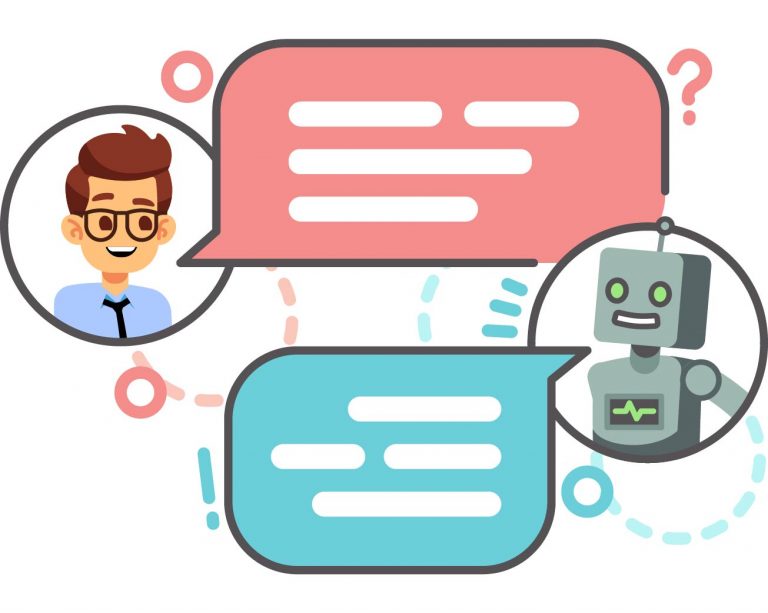Let’s be clear: the COVID-19 crisis has drastically increased consumer demand for chatbots. They keep you connected to your members while helping them with mundane issues like password resets, fee disputes, and minor banking needs.
And no chatbots are as hyped up as AI-powered chatbots these days. But what does that even mean? Are all AI chatbots the same? How can you tell one chatbot from the next?
If your credit union is curious about using chatbots, then this blog will help you ask the right questions of potential vendors.
Are Chatbots Really AI?
Chatbots use machine learning to master one subset of AI: natural language processing (NLP). NLP is concerned with how humans and computers interact using language. The “processing” part simply describes the process of turning language input into usable computer data.
We won’t bore you with the details, but NLP is supported by algorithms that understand language (NLU) and generate language (NLG).
And yes, all of this is considered a form of “weak” or “narrow” AI.
Are All Chatbots Created Equal?
Simply put, no, not all chatbots are created equal. Here at CU 2.0, we frequently use chatbots for ourselves and our clients. And they work great!
Our chatbots help with site navigation, service inquiries, and customer acquisition. But our chatbots aren’t AI-powered. Quite frankly, they don’t have the capacity to do half of what an AI bot could do.
And not all AI chatbots are on the same level, either. In all things AI, more data brings more accuracy. And some algorithms (there are many!) are more effective than others for certain tasks.
So, in the world of chatbots, AI-powered chatbots will generally be better than non-AI chatbots. But even among AI-powered chatbots, some are clearly better than others.
How to Evaluate AI Chatbots for Credit Unions
Evaluating chatbot vendors can be difficult if you don’t fully understand the technology behind AI. Fortunately, the chatbot experts at Verloop are happy to help people vet any potential chatbot.
They suggest asking three questions about the chatbot’s AI. Each question should tell your credit union something about how the bot works—and if it would be a good fit for you.
- What model are you using? NLP algorithms range from the very simple decision trees to the very complex neural networks.
Make sure the vendor can tell you what kind of algorithm(s) they use. If they can describe why they chose that model and how it helps, even better!
- Can you tell me about your training and test data? Verloop notes that “machine learning is based on two sets of data: training data and test data.”
Training data is what you use to build, train, and improve the accuracy of a chatbot. Test data is how you gauge the accuracy of your algorithm(s). If the vendor can speak credibly about their data sets and sources, then they probably have a more effective, trustworthy product.
- How relevant is your training data to our industry? A chatbot may be trained on data that doesn’t necessarily correspond to credit unions. And if that’s the case, no matter how well it seems to perform, it may not be well suited to the kinds of inquiries and tasks that it needs to do for you.
Of course, there are other questions you’ll want to ask as well. You might want to know about how well a chatbot can help with member acquisition (surprisingly well). Or maybe about whether it will effectively reduce call center volume (it almost certainly will).
But for simply evaluating the technology, these three questions are a great start.
Additional Reading
We only skimmed the surface of how to evaluate AI-powered chatbots for credit unions. If you want a more thorough, expert opinion, check out Verloop’s take on the same topic.
Want to stay informed about best-of-breed fintech solutions? Want help navigating different providers, technologies, and strategies? We can help in two ways:
First, subscribe to our blog!
Second, contact Chris Otey to see if our 100% free, no-obligation quarterly technology consultation calls would work for you.




